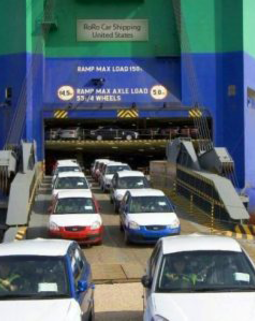Lesotho's Trade Minister, Joshua Setipa, spearheads efforts to impose strict controls on importing ultra-cheap second-hand vehicles from Japan. Concerns have been raised about the influx of vehicles deemed unfit for roads in their countries of origin, leading to increased road accidents within Lesotho.
Minister's Concerns
Minister Setipa expressed his concerns about Lesotho becoming a dumping ground for substandard vehicles. His primary grievance is that these vehicles, sold at giveaway prices, are not roadworthy and pose a significant threat to public safety.
Setipa emphasized that the government aims to address this issue by implementing stringent controls on importing second-hand vehicles.
Rising Road Accidents
The consequence of importing non-roadworthy vehicles is evident in the surge of road accidents in Lesotho. Minister Setipa highlighted the urgent need to decrease the rate at which these vehicles enter the country to mitigate the risk of accidents.
The government's focus is not to hinder development but to encourage the purchase of cars in good condition that prioritizes the safety of Basotho citizens.
Pricing and Roadworthiness
Setipa drew attention to the current trend of importing cars at incredibly low prices, ranging from $900 to $1000. He emphasized that these vehicles, already deemed unfit for roads in their countries of origin, contribute to the alarming rate of accidents in Lesotho.
The minister expressed concern about these vehicles being used as school taxis, endangering the lives of children.
Call for Certification and Collaboration
To address the issue, Setipa proposed a certification process requiring countries of origin to provide certificates confirming the roadworthiness of vehicles to be imported.
This initiative aims to ensure that vehicles entering Lesotho meet safety standards. Additionally, Minister Setipa announced a collaboration with the Ministry of Roads and Transport to enforce these regulations effectively.
Transition Period and Implementation
While advocating for safer import practices, Setipa acknowledged the existing businesses involved in importing second-hand vehicles. The government has given stakeholders in this industry until the end of July to align with the new regulations.
Beyond this transition period, the stricter laws and policies governing the importation of vehicles will come into full effect.
Conclusion:
In conclusion, Lesotho's proactive approach, led by Trade Minister Joshua Setipa, seeks to balance economic development and public safety. The proposed measures aim to address the root cause of increased road accidents by curbing the importation of unroadworthy vehicles, ultimately safeguarding the lives of Basotho citizens.





